#extravagance
Photo

Velvet evening gown by Molyneaux, 1930, Paris.
160 notes
·
View notes
Text

#cullinan#rolls royce#rr#rr cullinan#rolls royce cullinan#car#luxury car#expensive#rich#classy#wealth#money#extravagance
20 notes
·
View notes
Text
🤢
This is obscene.
43 notes
·
View notes
Text
But I love extravagance,
And wanting it has handed down
The glitter and glamour of the sun
As my inheritance.
Sappho, But I love extravagance
#Sappho#But I love extravagance#extravagance#maximalism#glitter#glamour#sun#sun quotes#Ancient Greek literature#Ancient Greek poetry#poetry#poetry quotes#quotes#quotes blog#literary quotes#literature quotes#literature#book quotes#books#words#text
23 notes
·
View notes
Text
obsessed w dilara findikoglu atm bc of the extravagant fantasy in her works. like....... come on...............
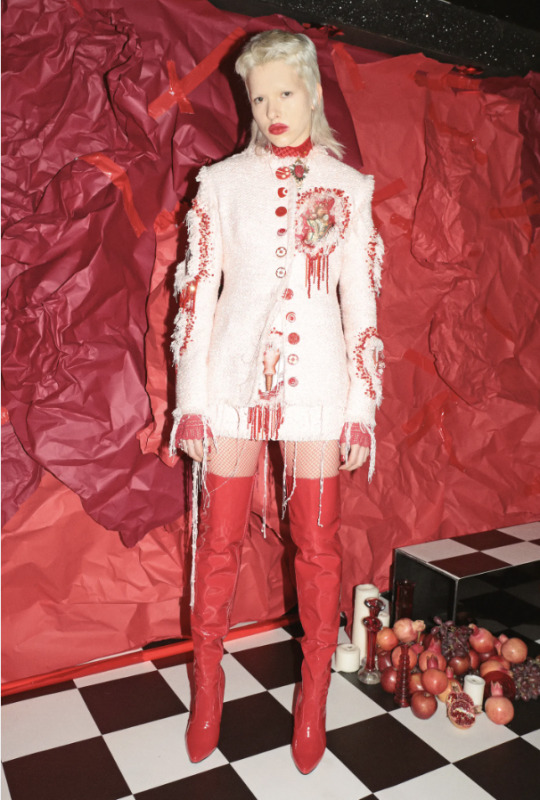

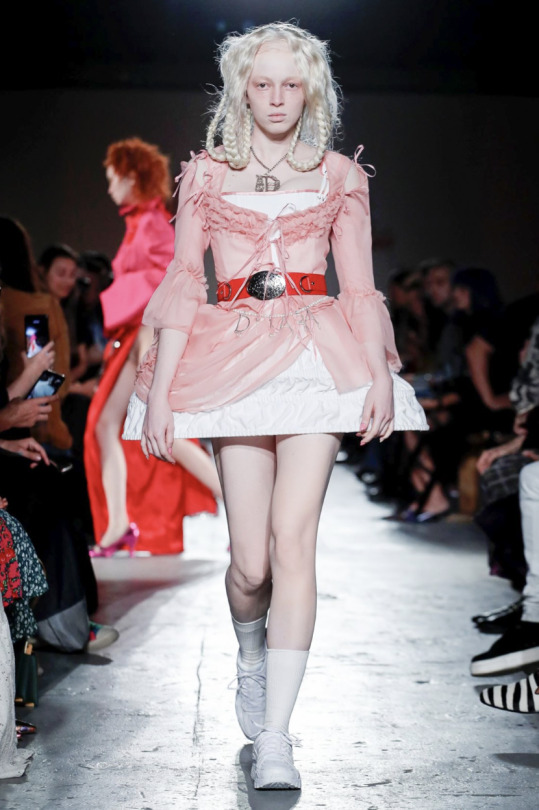
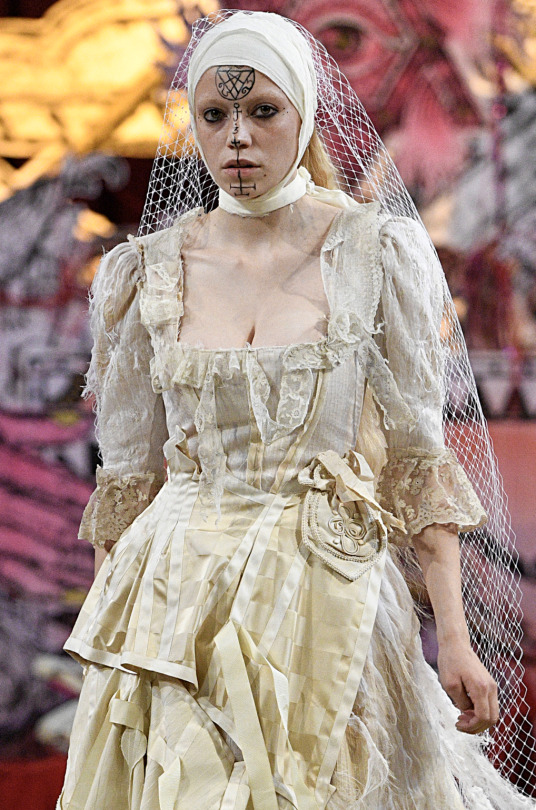
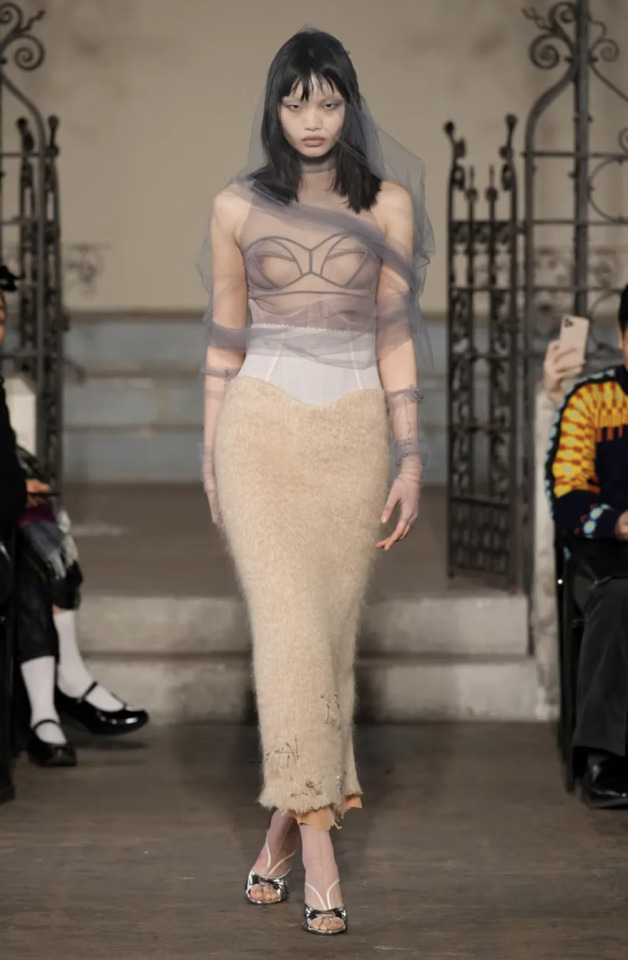

17 notes
·
View notes
Text
Elite, mostly male, thinkers remained convinced that men should be paid more than women, and the government passed the 1834 new Poor Law on that assumption:
It is clearly a waste of strength, a superfluous extravagance, (an economic blunder) to employ a powerful and costly machine to do work which can be as well done by a feebler and a cheaper one. Women and girls are less costly operatives than men . . . what they can do with equal efficiency it is therefore wasteful and foolish, economically considered, to set a man to do. By employing the cheaper labour, the article is supplied to the public at a smaller cost and therefore the demand for the article is increased.
"Normal Women: 900 Years of Making History" - Philippa Gregory
#book quotes#normal women#philippa gregory#nonfiction#elite#classism#sexism#1834 poor law#assumption#extravagance#machinery#pay gap#gender pay gap#supply and demand#exploitation
12 notes
·
View notes
Audio
5 notes
·
View notes
Text
A Game of Thrones, Eddard IV
“I will speak with His Grace,” Ned said. “This tourney is an extravagance the realm cannot afford.”
“Speak to him as you will,” Lord Renly said, “we had still best make our plans.”
“Another day,” Ned said. Perhaps too sharply, from the looks they gave him.
He would have to remember that he was no longer at Winterfell, where only the king stood higher; here, he was but first among equals.
“Forgive me, my lords,” he said in a softer tone. “I am tired.
“Let us call a halt for today and resume when we are fresher.” He did not ask for their consent, but stood abruptly, nodded at them all, and made for the door.
#a game of thrones#eddard iv#asoiaf#a song of ice and fire#eddard stark#robert baratheon#tournament of the hand#tourneys#extravagance#cost#seven kingdoms#king#kings#royalty#house baratheon of king’s landing#house baratheon#money#plans#small council#hand of the king#renly baratheon#tomorrow#sharp#house stark#winterfell#king’s landing#red keep#first among equals#tired#adjourned
2 notes
·
View notes
Text
There's no extravagance in my love, whatever is offered is still less...
Random question
5 notes
·
View notes
Text
The Green Light of Illusion: Unraveling the Enigma of The Great Gatsby
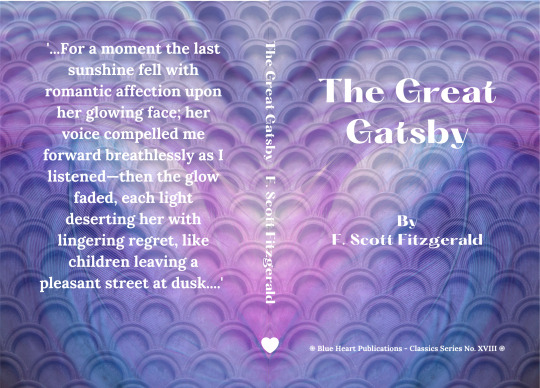
F. Scott Fitzgerald's "The Great Gatsby" is an intricate tapestry woven with the threads of illusion, reality, and the American Dream. Set against the extravagant backdrop of the Roaring Twenties, the novel unfolds through the eyes of Nick Carraway, a Yale graduate and veteran of World War I. Nick finds himself drawn into the enigmatic world of Jay Gatsby, a mysterious millionaire with an insatiable longing for the past and an unwavering pursuit of the unattainable Daisy Buchanan.
The novel is a vivid exploration of the Jazz Age, a period characterized by unprecedented economic prosperity, loosening social mores, and the pursuit of pleasure. Fitzgerald masterfully captures the excesses and superficialities of the time, using Gatsby's extravagant parties as a lens through which the emptiness of the era is exposed. The narrative subtly critiques the moral decay hidden beneath the glitz and glamour, revealing the fragility of societal values.
At the heart of the story is the elusive American Dream, personified by Gatsby's relentless quest for wealth and social status to win back Daisy, the embodiment of his idealized past. The green light at the end of Daisy's dock becomes a powerful symbol, representing both Gatsby's unattainable dreams and the broader illusion of the American Dream itself. Fitzgerald, with eloquence and insight, dissects the hollowness of the pursuit of material success and the ephemeral nature of happiness.
The characters in "The Great Gatsby" are meticulously crafted, each representing a facet of society during this tumultuous period. Gatsby, with his enigmatic persona, stands as a tragic figure emblematic of the illusions people construct to shield themselves from harsh realities. Daisy, a symbol of fleeting beauty and privilege, remains forever out of reach, a mirage that fuels Gatsby's relentless yearning.
Nick Carraway, the novel's narrator, serves as a moral compass, providing a lens through which the reader witnesses the moral decay and the disintegration of dreams. His observations and reflections paint a nuanced picture of the characters and the society they inhabit.
The prose in "The Great Gatsby" is a literary marvel. Fitzgerald's writing is both lyrical and incisive, capturing the essence of an era with a keen eye for detail. The novel's themes of illusion, disillusionment, and the pursuit of an unattainable ideal reverberate through the eloquent prose, making it a work of enduring significance.
"The Great Gatsby" is a timeless exploration of the complexities of the human spirit, societal expectations, and the elusive nature of the American Dream. Fitzgerald's critique of the Jazz Age resonates across generations, inviting readers to ponder the universal themes of love, loss, and the relentless pursuit of dreams.
F. Scott Fitzgerald's "The Great Gatsby" is available in Amazon in paperback 13.99$ and hardcover 20.99$ editions.
Number of pages: 290
Language: English
Rating: 9/10
Link of the book!
Review By: King's Cat
#Roaring Twenties#American Dream#Illusion vs. Reality#Jazz Age#Jay Gatsby#Daisy Buchanan#Nick Carraway#Wealth Disparity#Social Critique#Unattainable Dreams#Extravagance#Moral Decay#Symbolism#Green Light#Social Class#Materialism#Lost Generation#Love and Obsession#Tragedy#Socialite Lifestyle#Prohibition#New York Society#Excess and Decadence#Disillusionment#Romantic Idealism#Pursuit of Happiness#Loyalty and Betrayal#East Egg and West Egg#Character Complexity#Hedonism
4 notes
·
View notes
Text

2 notes
·
View notes
Text

#philosophy#quotes#Jean Paul Sartre#The Devil and the Good Lord#Sartre#modesty#humility#extravagance
9 notes
·
View notes
Text
The Green Light of Illusion: Unraveling the Enigma of The Great Gatsby

F. Scott Fitzgerald's "The Great Gatsby" is an intricate tapestry woven with the threads of illusion, reality, and the American Dream. Set against the extravagant backdrop of the Roaring Twenties, the novel unfolds through the eyes of Nick Carraway, a Yale graduate and veteran of World War I. Nick finds himself drawn into the enigmatic world of Jay Gatsby, a mysterious millionaire with an insatiable longing for the past and an unwavering pursuit of the unattainable Daisy Buchanan.
The novel is a vivid exploration of the Jazz Age, a period characterized by unprecedented economic prosperity, loosening social mores, and the pursuit of pleasure. Fitzgerald masterfully captures the excesses and superficialities of the time, using Gatsby's extravagant parties as a lens through which the emptiness of the era is exposed. The narrative subtly critiques the moral decay hidden beneath the glitz and glamour, revealing the fragility of societal values.
At the heart of the story is the elusive American Dream, personified by Gatsby's relentless quest for wealth and social status to win back Daisy, the embodiment of his idealized past. The green light at the end of Daisy's dock becomes a powerful symbol, representing both Gatsby's unattainable dreams and the broader illusion of the American Dream itself. Fitzgerald, with eloquence and insight, dissects the hollowness of the pursuit of material success and the ephemeral nature of happiness.
The characters in "The Great Gatsby" are meticulously crafted, each representing a facet of society during this tumultuous period. Gatsby, with his enigmatic persona, stands as a tragic figure emblematic of the illusions people construct to shield themselves from harsh realities. Daisy, a symbol of fleeting beauty and privilege, remains forever out of reach, a mirage that fuels Gatsby's relentless yearning.
Nick Carraway, the novel's narrator, serves as a moral compass, providing a lens through which the reader witnesses the moral decay and the disintegration of dreams. His observations and reflections paint a nuanced picture of the characters and the society they inhabit.
The prose in "The Great Gatsby" is a literary marvel. Fitzgerald's writing is both lyrical and incisive, capturing the essence of an era with a keen eye for detail. The novel's themes of illusion, disillusionment, and the pursuit of an unattainable ideal reverberate through the eloquent prose, making it a work of enduring significance.
"The Great Gatsby" is a timeless exploration of the complexities of the human spirit, societal expectations, and the elusive nature of the American Dream. Fitzgerald's critique of the Jazz Age resonates across generations, inviting readers to ponder the universal themes of love, loss, and the relentless pursuit of dreams.
F. Scott Fitzgerald's "The Great Gatsby" is available in Amazon in paperback 13.99$ and hardcover 20.99$ editions.
Number of pages: 290
Language: English
Rating: 9/10
Link of the book!
Review By: King's Cat
#Roaring Twenties#American Dream#Illusion vs. Reality#Jazz Age#Jay Gatsby#Daisy Buchanan#Nick Carraway#Wealth Disparity#Social Critique#Unattainable Dreams#Extravagance#Moral Decay#Symbolism#Green Light#Social Class#Materialism#Lost Generation#Love and Obsession#Tragedy#Socialite Lifestyle#Prohibition#New York Society#Excess and Decadence#Disillusionment#Romantic Idealism#Pursuit of Happiness#Loyalty and Betrayal#East Egg and West Egg#Character Complexity#Hedonism
2 notes
·
View notes
Quote
Marchesa Luisa Casati spent recklessly and, beyond the sums she lavished on her wardrobe, she hosted parties of astounding extravagance. Many were held at the Palazzo Venier dei Leoni, but the one that entered Venetian folklore was the 18th-century costume ball for which Luisa took over the whole of Piazza San Marco, hiring 200 black servants, all dressed by Leon Bakst, to hold back the watching public.
Christie’s
#quote#christie’s#Christie’s quote#marchesa luisa casati#luisa casati#la casati#luisa amman#marquise casati#recless quote#lavished quote#lavished#recklessly#astounding quote#astounding#extravagance quotes#extravagance#marchesa casati#luisa amman casati#Luisa Adele Rosa Maria von Amman#Luisa Adele Rosa Maria Amman#Marquise Casati Stampa di Soncino#Marchesa Casati Stampa di Soncino#Luisa Marchesa Casati Stampa Di Soncino#Luisa Casati Stampa di Soncino#Marchesa Casati Stampa#Marquise luisa casati#la Marquise#luisa#casati#stampa
7 notes
·
View notes
Text



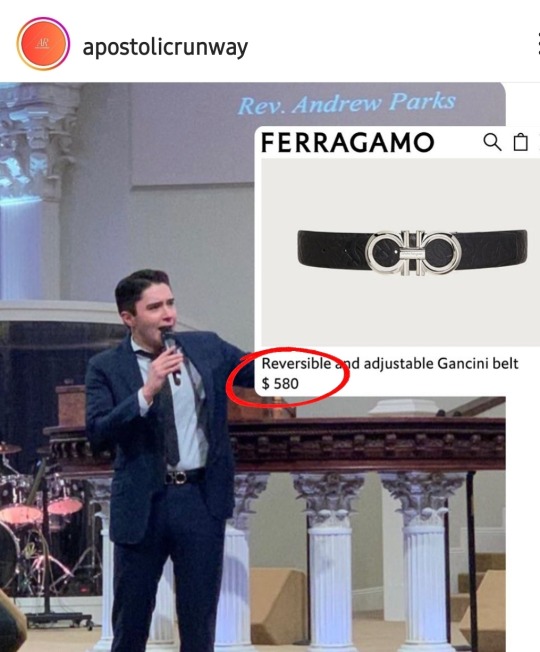
Every chance I get, I will continue to say it - Tax the church! So many people could have been helped with the tithe money spent on this crap! Even if they're knockoffs, I thought christians were supposed to avoid the appearance of evil things like being "worldy" greed and gluttony!?
#this is disgusting#louis vitton#extravagance#tithe#tithe money#give your tithe#10%#plus love offerings#church#tax the churches#tax the church#tax exemption#taxes#christianity#religion#exvangelical#ex fundamentalist#exchristian#shame on them
14 notes
·
View notes
Text

Ok, what will I create now?
#fashion blogger#vogue#vogue france#parisian style#creativity#extravagance#refinement#it was a gift#jennifersblog
2 notes
·
View notes